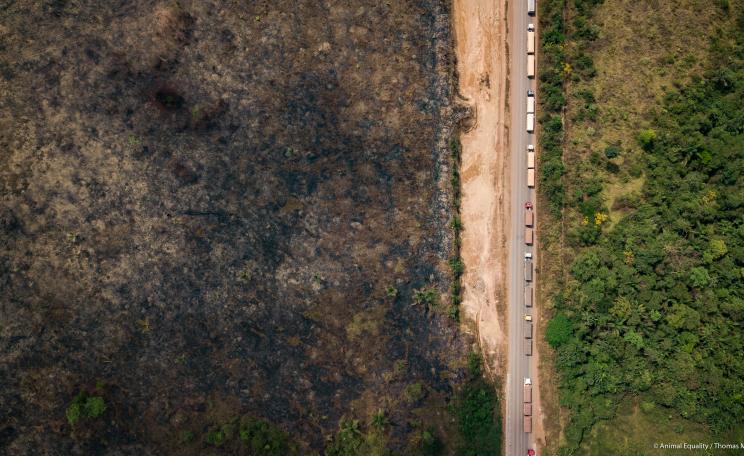Food derived from methane-generating ruminant animals such as sheep and cows has the highest level of greenhouse gas emissions, according to research published in the US.
The research, commissioned by the Environmental Working Group (EWG), was based on emissions from everything from the fertilisers used to grow animal feed to the processing and cooking of the final product.
Lamb had the largest impact, with 39kg of carbon dioxide equivalent [where emissions were another gas such as methane they were converted to equivalent CO2] produced for every kg of final product - about 50 per cent more than beef, the next highest. Cheese came third-highest, mainly due to extra emissions produced through the high quanties of milk required to make it.
The higher emissions for lamb over beef, based on analysis of US lamb production systems, was due to lambs producing less meat in relation to live weight than cows.
Farmed salmon (analysis from Canada, Chile and Norway) was also rated highly because of the emissions generated by producing fishmeal. The researchers also found consumers throw away a lot of what they buy meaning additional salmon is produced for every kg eaten.
More than 90 per cent of beef's emissions, 69 per cent of pork's and 72 per cent of farmed salmon's emissions came in the production phase. For beef and dairy this was largely from methane emissions from digestion and manure but also the high emissions produced by growing animal feed.
Grain production, in particular, requires large amounts of fertiliser, pesticides, water and fuel to harvest - all of which add to the overall emissions of livestock fattened up on it.
By contrast, chickens generate no methane and far fewer emissions during production - with significantly less feed needed to produce the same amount of meat. However, there are animal health and welfare concerns about intensive chicken production.
Although the figures are from analysis done in the US, they are broadly in line with similar studies commissioned by Defra in the UK.
The analysis did not make comparisons of conventional animal production versus organic. It said slow-reared animals would produce more methane and nitrous oxide emissions, both of which are powerful greenhouse gases.
However, as well as the many other environmental benefits of organic, it said these higher emissions could be offset by lower use of fertilisers and grain-based animal feed.
While not intended to be a completely accurate assessment of the environmental footprint of different types of food, the researchers say it does provide a benchmark for comparing our daily food choices.
'By eating and wasting less meat (especially red and processed meat) and cheese, you can simultaneously improve your health and reduce the climate and environmental impact of food production,' it concludes.
Useful links
Full report: Meat Eaters Guide to Health and the Climate
| READ MORE... | |
 |
INTERVIEW Joyce D'Silva: 'Meat should carry a health warning' Eifion Rees talks to the Compassion in World Farming veteran and co-editor of The Meat Crisis - a shocking new book that exposes the range of environmental and health threats facing us if we don't kick our addiction to meat |
 |
INTERVIEW Jonathan Safran Foer: environmentalists who eat meat have a blind-spot Factory farming depends on our ignorance but the world needs to move away from eating meat, US author Jonathan Safran Foer tells Tom Levitt |
 |
INVESTIGATION Undercover Investigation: The shocking cost of US 'mega-dairies' With planning permission for Britain's biggest dairy at Nocton about to be re-submitted, The Ecologist travels to California to examine intensive milk production - and finds factory farms, conflict, intimidation, pesticides, pollution and small-scale farmers driven out of business... |
 |
COMMENT It's time we copied the Malaysians and ate less meat and dairy As Earth Overshoot Day gets earlier every year, David Nussbaum argues that changing our diets to less meat and dairy could help us stay within the planet's environmental limits |
 |
NEWS ANALYSIS Contaminated eggs: industrial farming leading to dioxin-type food scares The latest food scare - the contamination of British eggs with the cancer causing chemical dioxin - can be linked to our reliance on complex food chains and industrial production methods, report Joanna Blythman and Tom Levitt |








